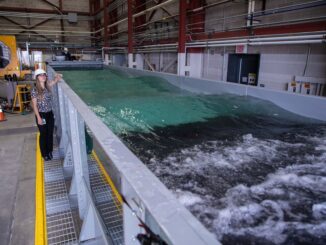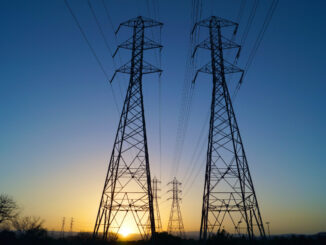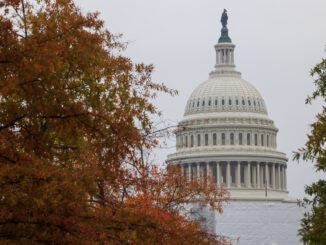
September 24, 2022 by stopthesethings 4 Comments
Britain’s power consumers (or what’s left of them) are brewing for a full-scale revolt.
12 months ago, the average annual energy bill was £1,400 ($2,400). Energy industry analyst Cornwall Insight forecasts that the British price cap will skyrocket and the average annual bill will reach £3,582 ($6,177) next month. By January, it predicts it will be £5,000 (almost $10,000) a year. No wonder Brits are furious.
And a fair degree of that fury rests on the fact that they have been lied to for the best part of 20 years.
You know, the usual rubbish about our ‘inevitable’ transition to an all wind and sun powered future bringing cheap and abundant electricity to all. An apparently easy sell, driven by the meme about the wind being ‘free’ and that the ‘sun’ is cheaper still. And yet, for some strange reason, every single country that has attempted to run on sunshine and breezes is now facing routine power rationing (every time the sun sets and/or calm weather sets in) and households and businesses are suffering from crushing power bills. In Britain, a significant number of the former will be left freezing in the dark this winter – many will not survive; thousands of the latter will be forced to shut up shop and quit – enterprises that took decades to build will simply disappear, in a heartbeat.
It’s a disaster, to be sure. However, in Australia (and elsewhere) there is a chance to avoid the worst of it, provided the brakes are applied now; energy policy is returned to the engineers who designed and built the reliable and affordable power supplies we’ve all enjoyed, till now; and the subsidy seeking carpetbaggers are shown the door.
UKIP’s Nigel Farage spells it out below.
Word of advice: don’t follow us down the net-zero pathThe AustralianNigel Farage24 September 2022
Your former prime minister, Bob Hawke, famously once said: “Get the policy right, and the politics takes care of itself.” Across the West, I have no doubt that we are staring down the barrel of the biggest policy failure in our collective history. And sadly, what will follow will be the most disastrous period of hardship and civil discord we have ever witnessed.
The above may sound melodramatic to the average Australian. But that’s because you’ve been shielded from this nonsense until recently. You haven’t had to experience exactly what happens when your government pursues the nonsensical policy of net zero.
Under the steady hand of previous Coalition governments, up until around 2015, Australia took a commonsense approach to climate policy given how much of your economy depends on mining and energy, and ultimately how little Australia’s emissions contribute to total global CO2 levels. You met your targets, exceeded them even. And you didn’t destroy your economy or the living standards of your citizenry to do it.
But here you are, at the beginning of the decline. Former prime minister Scott Morrison decided to show his virtue at the COP26 summit last year and joined the net-zero brigade. It made him very popular with the international elite and, I have no doubt, in Beijing too. Australia has now committed itself to the same mad, self-destructive path we have been on for some years in the UK.
Let me share with you the results of going down this road in my country and farther afield across Europe. Almost the entirety of the British political class, from Tony Blair to Boris Johnson, have been totally convinced that carbon dioxide emissions are leading to every major weather event and the end of mankind. Any arguments that CO2 levels have been much higher in previous times or man-made emissions are only a tiny percentage of the total are mainly brushed aside. We have even redefined CO2 as a pollutant, which is utterly ridiculous as market gardeners pump it into their greenhouses to make their tomatoes grow better. Nonetheless, we have ploughed on with our ambitious and dangerous plans. There are some key takeaways for an Australian audience and they come in two substantial parts.
The first is that we are rapidly deindustrialised, and the second is that we completely refuse to be self-sufficient in energy. In all major industrial and manufacturing processes, large amounts of energy are needed to operate. In Britain, our electricity has become some of the most expensive in the world as we forced subsidy bills on to our companies, and indeed consumers too, to fund the Renewables Industry Bill for wind turbines. Our aluminium smelters are gone, much of our refining industry has closed and most of the steel we use is now made in India and China, with the products then shipped back to us. But this has allowed Johnson and others to boast that we were leading the world in CO2 reductions.
Well, there is a reduction from the United Kingdom, perhaps, but if you think about the effects of our action, the net effect on global CO2 levels was actually to increase them.
In terms of energy, we have vast untapped onshore natural gas reserves, yet we have not produced one single barrel. Better, say the globalist politicians, to rely on the just-in-time international supply chain. And who needs storage facilities anyway? A country that could easily have been an energy exporter now imports not just gas but even electricity from our neighbours in France and Norway.
The next six months now depend completely on one single factor: the weather. If a large anticyclone covers Britain in February, it will lead to windless and cold weather. At this point it is very likely that the lights will go out, literally. We will go backwards to the time before the Industrial Revolution, as all life grinds to a halt and many die of cold. It is stupidity on a level that is hard to believe, but if you follow our great student saviour Greta Thunberg this is what will happen in Europe.
It all depends on Vladimir Putin who, increasingly desperate over the situation in Ukraine, could spring yet more nasty surprises. When former US president Donald Trump warned the Germans they were becoming too dependent on Russian fuel, they all laughed at him. Now, energy rationing is being introduced in Germany. In Paris, once known as the City of Lights, the Eiffel Tower is dimmed at night as a means of energy saving.
Given that Australia can see very clearly now what has happened, it’s worth bearing in mind that your global CO2 emissions are barely even 1 per cent of the total. I would suggest a complete rethink. Energy represents 20 per cent of your total exports. Mining itself represents 10 per cent of your gross domestic product. Your Treasurer, Jim Chalmers, was happy to report a $50bn windfall in the budget this week. One does well to note that over half of that (about $28bn) was due to rising commodity prices – that is, mining.
The new unachievable target of a 43 per cent reduction in CO2 levels from 2005 to 2030 by the new Labor government will ruin your economy and lead to virtually no change in global CO2 levels. As in Britain, the impact on jobs and energy prices will devastate the average working family in Australia.
The time has come for a proper debate in Australia. Anthony Albanese may want to consider a referendum on net zero. He and the rest of the political class may find the result surprising, and it may save them from a political hiding in the years to come.The Australian



